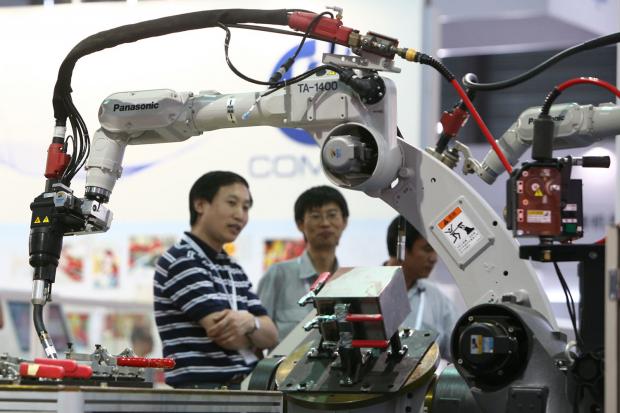
Breaking News
 $26M Frozen on Blockchain - With One Click
$26M Frozen on Blockchain - With One Click
 Italy are on national strike shutdown rejecting digital enslavement...
Italy are on national strike shutdown rejecting digital enslavement...
 The following U.S. states are currently using the rebranded "Reporty Homeland Security" so
The following U.S. states are currently using the rebranded "Reporty Homeland Security" so
 NATO Chief Urges Europe To Prepare For Long-Term World War With Russia, China, Iran & North Korea
NATO Chief Urges Europe To Prepare For Long-Term World War With Russia, China, Iran & North Korea
Top Tech News
 HUGE 32kWh LiFePO4 DIY Battery w/ 628Ah Cells! 90 Minute Build
HUGE 32kWh LiFePO4 DIY Battery w/ 628Ah Cells! 90 Minute Build
 What Has Bitcoin Become 17 Years After Satoshi Nakamoto Published The Whitepaper?
What Has Bitcoin Become 17 Years After Satoshi Nakamoto Published The Whitepaper?
 Japan just injected artificial blood into a human. No blood type needed. No refrigeration.
Japan just injected artificial blood into a human. No blood type needed. No refrigeration.
 The 6 Best LLM Tools To Run Models Locally
The 6 Best LLM Tools To Run Models Locally
 Testing My First Sodium-Ion Solar Battery
Testing My First Sodium-Ion Solar Battery
 A man once paralyzed from the waist down now stands on his own, not with machines or wires,...
A man once paralyzed from the waist down now stands on his own, not with machines or wires,...
 Review: Thumb-sized thermal camera turns your phone into a smart tool
Review: Thumb-sized thermal camera turns your phone into a smart tool
 Army To Bring Nuclear Microreactors To Its Bases By 2028
Army To Bring Nuclear Microreactors To Its Bases By 2028
 Nissan Says It's On Track For Solid-State Batteries That Double EV Range By 2028
Nissan Says It's On Track For Solid-State Batteries That Double EV Range By 2028
China Is Building a Robot Army of Model Workers

Inside a large, windowless room in an electronics factory in south Shanghai, about 15 workers are eyeing a small robot arm with frustration. Near the end of the production line where optical networking equipment is being packed into boxes for shipping, the robot sits motionless.
"The system is down," explains Nie Juan, a woman in her early 20s who is responsible for quality control. Her team has been testing the robot for the past week. The machine is meant to place stickers on the boxes containing new routers, and it seemed to have mastered the task quite nicely. But then it suddenly stopped working. "The robot does save labor," Nie tells me, her brow furrowed, "but it is difficult to maintain."
The hitch reflects a much bigger technological challenge facing China's manufacturers today. Wages in Shanghai have more than doubled in the past seven years, and the company that owns the factory, Cambridge Industries Group, faces fierce competition from increasingly high-tech operations in Germany, Japan, and the United States.

 Carbon based computers that run on iron
Carbon based computers that run on iron

